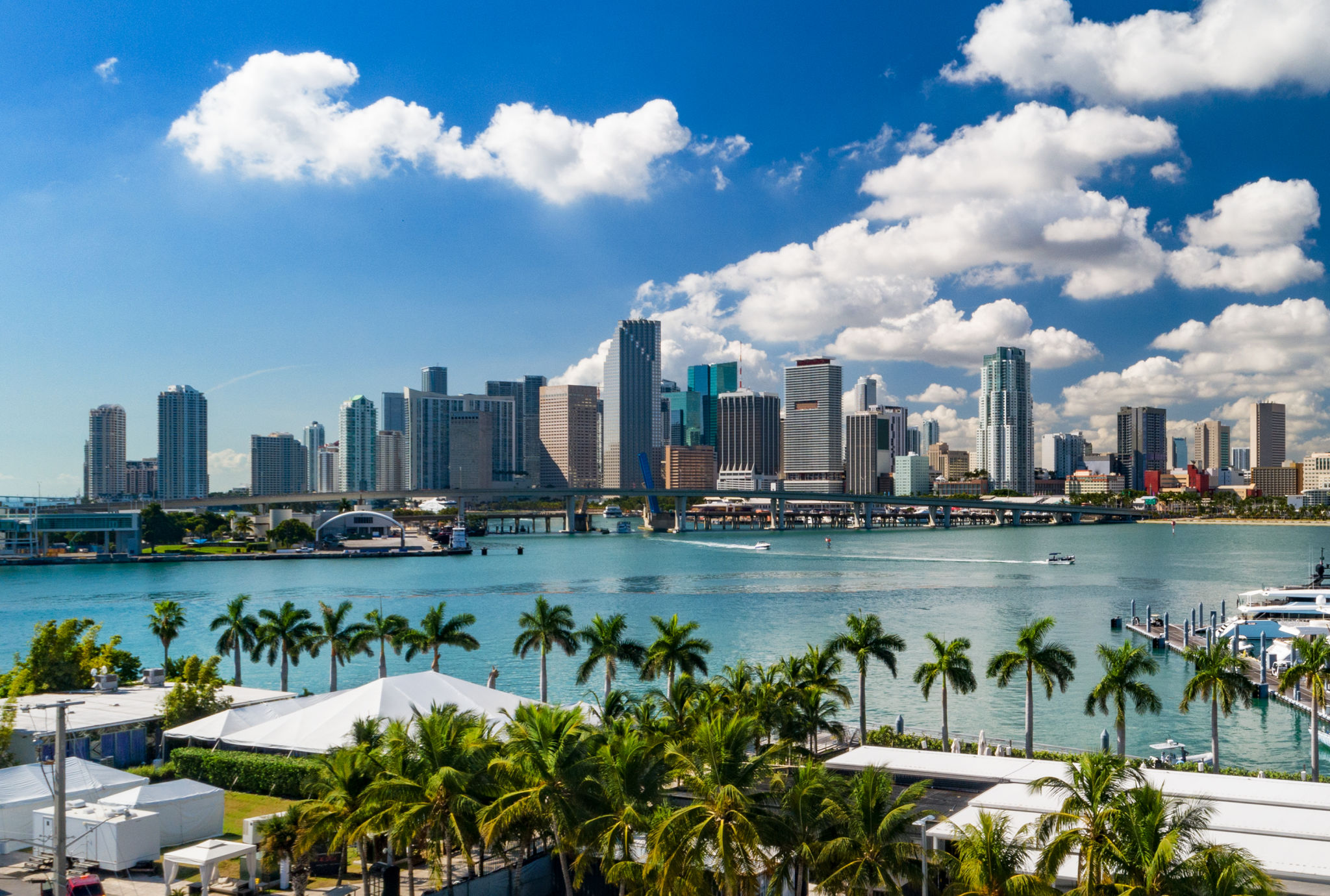Choosing the Right Millwork for Miami's Unique Climate
BI
Understanding Miami's Climate
Miami is known for its tropical monsoon climate, characterized by hot, humid summers and mild winters. The city's proximity to the Atlantic Ocean and the Gulf of Mexico contributes to high humidity levels year-round. When choosing millwork for Miami homes or businesses, it's crucial to consider these unique climate conditions, as they can significantly impact the longevity and appearance of your woodwork.
High humidity can cause wood to warp, swell, or even rot if not properly treated. Thus, selecting the right materials and treatments is essential to ensure durability and maintain aesthetic appeal. Traditional wood choices might not always be the best fit for Miami's environment.

Choosing the Right Materials
When selecting millwork materials suitable for Miami's climate, focus on moisture-resistant options. Hardwoods such as teak, cedar, and mahogany are excellent choices due to their natural resistance to water and humidity. These woods are less likely to warp or swell compared to softer woods like pine or fir.
In addition to natural hardwoods, engineered wood products like medium-density fiberboard (MDF) or plywood with veneer finishes can offer enhanced durability. These alternatives are designed to withstand humidity better than solid wood and can be an excellent choice for intricate millwork designs.

Treatment and Finishing
The right treatment and finishing processes are critical in protecting millwork from Miami's moisture-rich air. Using sealants, varnishes, or weatherproof paints can help create a protective barrier against humidity. It's advisable to apply multiple coats for maximum effectiveness.
Consider using finishes that contain UV protectants and fungicides to further safeguard millwork from sun damage and mold growth. Regular maintenance, such as reapplying finishes when necessary, will also help extend the life of your millwork.
Design Considerations
Beyond material choice, design considerations play a role in the performance of millwork in Miami's climate. Opt for designs that allow for some movement, as this can help accommodate any natural expansion or contraction of the wood due to humidity changes.

For example, avoid tightly sealed joints and edges that don't allow for any give. Instead, use construction techniques that incorporate expansion joints or flexible adhesives, which can help mitigate the effects of swelling and contraction.
Sustainability Matters
As environmental concerns grow, choosing sustainable materials for millwork becomes increasingly important. Look for suppliers that offer FSC-certified woods or reclaimed materials. These options not only reduce your environmental footprint but also provide unique aesthetic qualities that can enhance your space.
- Choose FSC-certified woods for eco-friendly options.
- Consider reclaimed wood for a rustic yet sustainable look.
- Opt for low-VOC finishes to reduce environmental impact.
Consulting with Professionals
When in doubt, consulting with a professional millwork specialist familiar with Miami's climate can be invaluable. They can provide insights into the best materials and practices tailored to your specific needs and preferences.
Experts can also help in customizing designs that not only withstand the elements but also complement the architectural style of your home or business. This ensures you achieve both functionality and aesthetic appeal in your millwork projects.

In conclusion, choosing the right millwork for Miami's unique climate involves careful consideration of materials, treatments, and design approaches. By prioritizing moisture resistance and sustainability while leveraging professional expertise, you can ensure your millwork stands the test of time while enhancing your space's beauty and value.